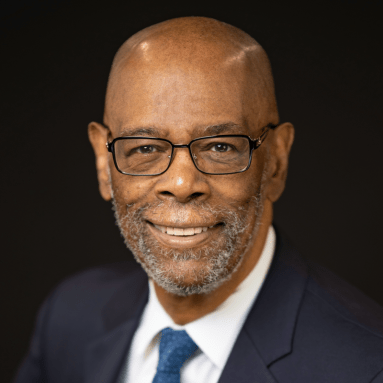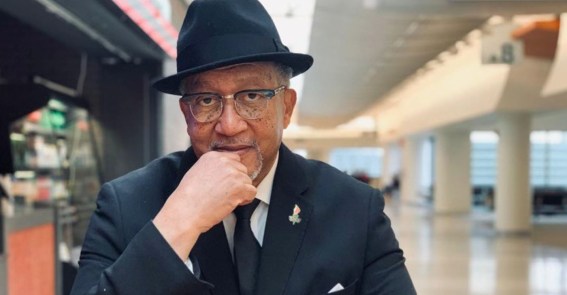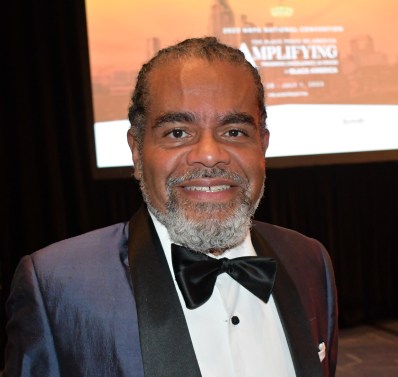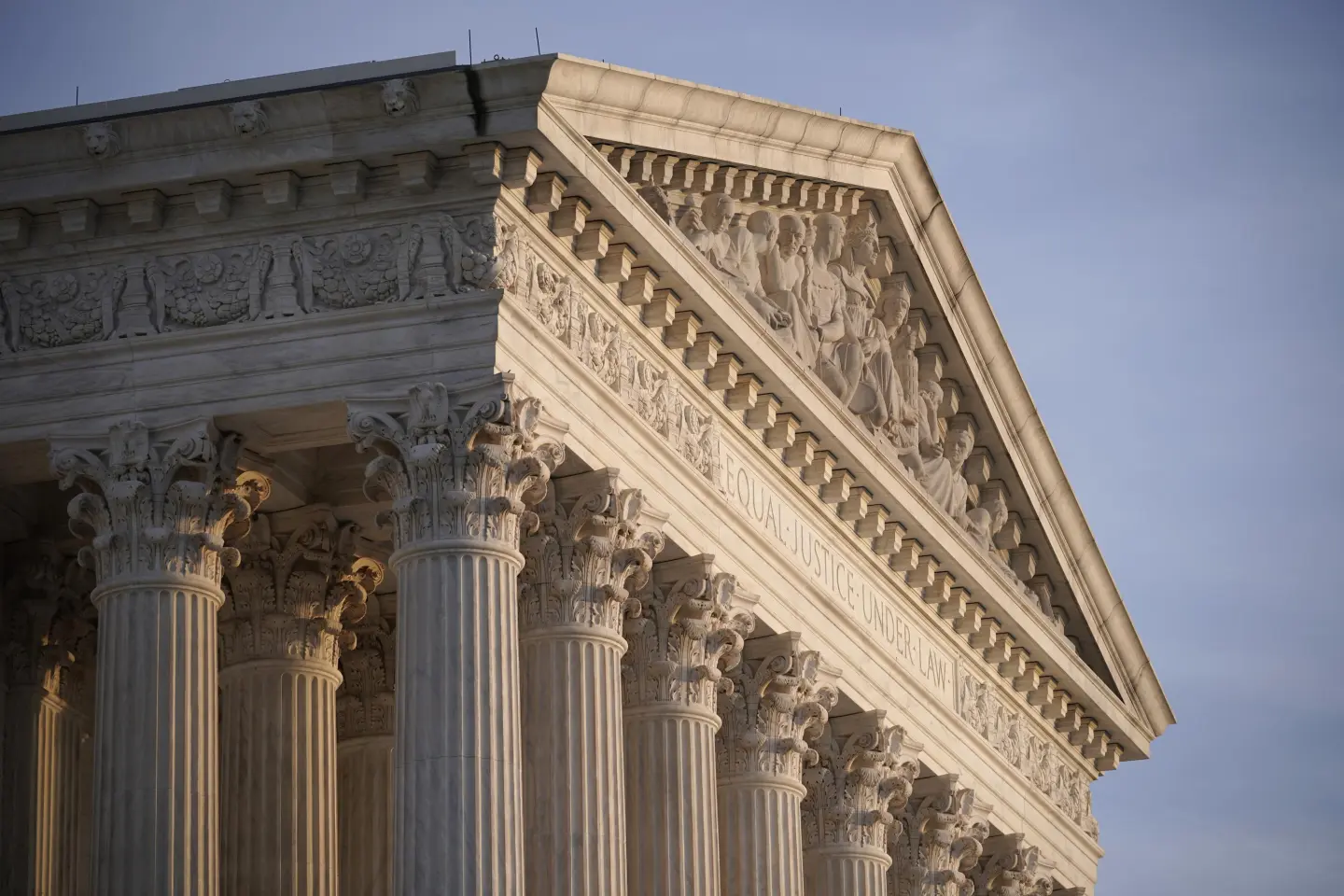Even though this nation was built upon 400-plus years of Affirmative Action for white people (which has not ceased), and that the Affirmative Action adopted by this country via President John F. Kennedy’s Executive Order 10925 in 1961 has benefitted white women more than any other U.S. demographic, the Supreme Court of the United States (SCOTUS) has overturned, thrown out and done away with America’s legal framework of Affirmative Action.
Why was it ended? Because the heavily conservative-leaning SCOTUS used the false premise (i.e. lie) that America is a “colorblind society” to argue that Affirmative Action–legal redress for 400-plus years of oppression, brutality, rape, land theft, intellectual property theft, destruction of and loss of Black-owned homes and businesses due to white domestic terrorism, denial of access to countless benefits (i.e. Social Security, the GI Bill, the U.S. Homestead Act, etc.), redlining, convict leasing system, savage educational inequalities, medical apartheid, environmental racism, etc.–was no longer needed.
In other words, SCOTUS argued that Affirmative Action (which again benefits white women more than any other U.S. demographic) provided an “unfair” advantage to Blacks (who are still experiencing the past and present ramifications of 400-plus years of oppression, brutality, rape, land theft, intellectual property theft, destruction of and loss of homes and businesses due to white domestic terrorism, denial of access to countless benefits, redlining, convict leasing system, savage educational inequalities, medical apartheid, environmental racism, etc.).
This move happened while the National Newspaper Association (NNPA), the professional organization of this nation’s Black Press (which has been in existence for 196 years), was in the middle of its national convention, held this year in Nashville. Because the Black Press has been the voice of Black people for nearly two centuries, a vehicle created to allow us to speak for ourselves, define ourselves and tell our own stories, NNPA members understandably had strong opinions upon hearing the SCOTUS/Affirmative Action news.
Here are some of those responses to the SCOTUS decision deeming Affirmative Action “unconstitutional;” responses gathers just moments after the SCOTUS decision was rendered:
Denise Rolark Barnes, publisher, Washington Informer. Courtesy Washington Informer.
DENISE ROLARK BARNES, Publisher, Washington Informer
This is a decision that many of us we knew would soon be coming. I just finished speaking with someone about my experience when I was a student at Howard University School of Law. And we were adamantly fighting when the Bakke decision (1978) was rendered, which helped to save Affirmative Action. But we knew that the challenges were going to be consistent, and they have been. And so, it just goes back to what I think I’ve always felt and believed, that words my father used to always say is, “If it is to be, it’s up to me. And no one can save us for us, but us.” We are going to have to be as vigilant in fighting for what’s right for us as human beings in this country, and people who have given our lives and died for this country, that helped to build this country, we’re are going to have to fight for our rights just as hard as our ancestors did. And it’s a struggle that will not end. It’s not going to end. So, I’m in no ways tired or despondent. I just feel like the work continues, and we just have to be prepared to continue to fight the battle.
 Jim Washington. Courtesy The Atlanta Voice.
Jim Washington. Courtesy The Atlanta Voice.
JIM WASHINGTON, Associate, The Atlanta Voice and Dallas Weekly
Devastated, if you will. Because we’re living in a world right now where I think the powers that be are trying to erase us from the history of this country. Affirmative Action was put there primarily as a remedy to previous discrimination against African Americans. So, if you could prove that history had said that discrimination was shown in the past, that kept you out, Affirmative Action was what it says, affirmative action. Then, there could be remedy from schools or public facilities or what have you. So, you could use race i.e., like institutions. If you could prove that there was a discrimination against African Americans to get into law school somewhere, then the school could use race to remedy that. That was what it was for. But I think it’s been looked at a little bit differently. So now it’s like, it’s almost an unfair scenario. It just shows you the politicization of this Supreme Court with that decision. Today, it’s a sad day, but you still have to be diligent and vigilant in trying to remedy the wrongs of the past to right then for the future.
 NNPA President Dr. Ben Chavis. Courtesy NNPA.
NNPA President Dr. Ben Chavis. Courtesy NNPA.
DR. BEN CHAVIS, Chairman, National Newspaper Association (NNPA)
On behalf of the National Newspaper Public Association, we are very disturbed, we are upset and we reject what the Supreme Court is just done to make Affirmative Action unconstitutional. Right now, the Supreme Court itself is unconstitutional by denying African Americans and other communities of color a pathway to compensate for all of the past centuries of oppression, of enslavement, of discrimination and wrongdoing. We are going to continue to fight. It’s not over with. This issue of Affirmative Action, even though it’s been found in today’s court to be unconstitutional, we are going to continue to fight for freedom, justice and inequality.
 Rev. Mark Thompson. Photo by Aswad Walker.
Rev. Mark Thompson. Photo by Aswad Walker.
REV. MARK THOMPSON, Activist, NNPA Member
Well, the Supreme Court struck down Affirmative Action. It’s not a surprise. It’s something that we expected. And as much as we know how corrupt the Supreme Court is today, all of the blame does not allow with them. This has been part of a movement for a number of years. Dr. King wrote in his letter from the Birmingham Jail that it might be the white person who’s apathetic, even the liberal, that is a problem. When you had people who were supposed to be our allies in the white community, say they supported programs like Affirmative Action until they found that one of their kids did not have the qualifications to get into a college or university, then they blamed us. They turned on us. No one was ever denied admission to a college or university to make space for an African American.
The numbers, the facts, all the evidence shows that not to be true. But people turned because that was an excuse they gave because they couldn’t face up to the fact that maybe they didn’t prepare their young person well enough, or maybe their student just didn’t cut it at all. So, this sets us back a great deal. And I’m speaking the way I’m speaking because we’ve got to call our Supreme Court, but we also must call out all of those in this country, who had this sentiment; the same group of people who even liberal, who were white, some of whom were women who voted for Trump, who never believed after we told them it would happen. They never believed that Roe would be overturned. They said, “Oh, y’all are just saying the sky is falling.” Now look what happened. And now here we are. This sets us back. You cannot learn and grow as a culture, as a society, as humankind, if there is not diversity, if we’re not all appreciating one another’s experience, and what each one of us brings to this tapestry, this quilt that is called America, if not the world society. This is a big setback.



